Sad and angry about Labour’s current plight
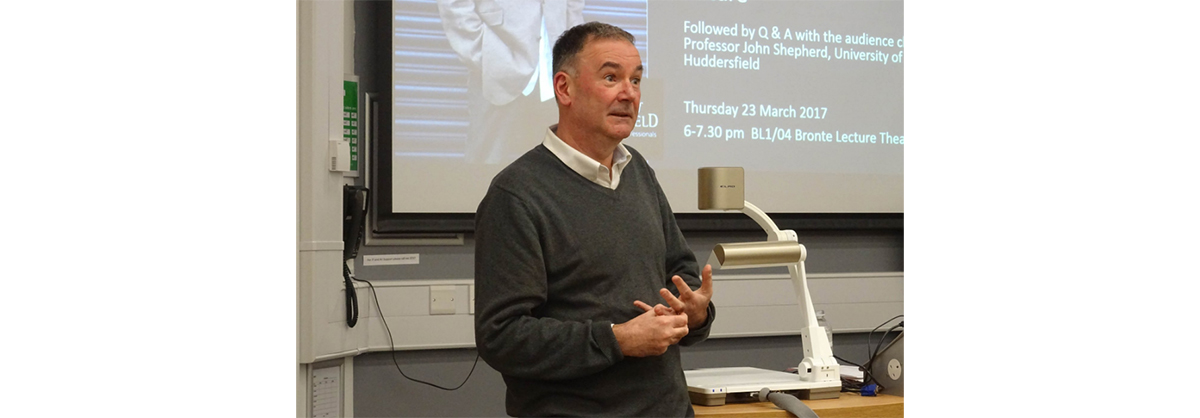
Wed, 29 Mar 2017 10:05:00 BST
Labour MP Jon Cruddas is deeply critical of what he sees as the party’s refusal to hold a genuine debate on its problems
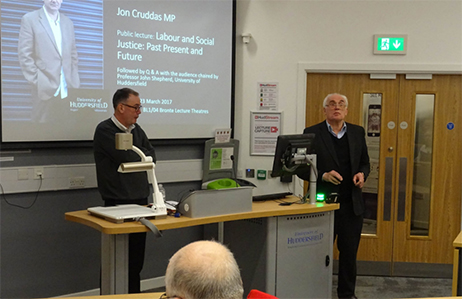 ►Jon Cruddas MP (left) with historian Professor John Shepherd
►Jon Cruddas MP (left) with historian Professor John Shepherd
SPEAKING at the University of Huddersfield, one of Labour’s most respected MPs and policy analysts – who is “sad and angry” about its current plight – has outlined plans for a think tank of academic experts to carry out an in-depth review of the party’s core beliefs. This would help it recover from what he believes is its worst ever crisis – electoral defeat in 2015 and the aftermath.
A fuller understanding of Labour’s history and traditions will play a key role in attempts to reboot the party and its prospects, argued Jon Cruddas, MP for Dagenham and Rainham.
“We should relearn our own history and there is nowhere better to do that than Huddersfield, given the Labour history traditions here,” he said, at the conclusion of a public lecture titled Labour and Social Democracy: Past, Present and Future.
Mr Cruddas told the audience – which included a number of leading historians of the Labour movement – that he aimed to build a platform that would enable historians and philosophers to undertake a “root and branch” examination of the party’s policies. The goal is “to chart a path to the future based around ethics and solidarity” and “to build a sense of justice based around the notion of the common good”.
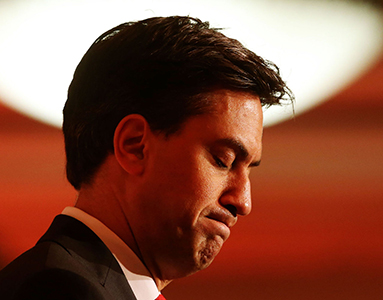 Throughout his lecture, Mr Cruddas – a former Downing Street advisor who declined ministerial roles during the Blair and Brown governments but did serve as a policy strategist in Ed Miliband’s (pictured left) Shadow Cabinet – was deeply critical of what he sees as the party’s refusal to hold a genuine debate on its problems.
Throughout his lecture, Mr Cruddas – a former Downing Street advisor who declined ministerial roles during the Blair and Brown governments but did serve as a policy strategist in Ed Miliband’s (pictured left) Shadow Cabinet – was deeply critical of what he sees as the party’s refusal to hold a genuine debate on its problems.
“We are going through the greatest crisis that the Labour Party has faced in its history,” he said, but the opportunity to discuss it is not being taken. Instead, there was a “synthetic battle” between the Corbynites and the right of the party.
“It’s always a battle of personalities – electability is the code for it – but never is it a conversation about the character of the party. Never once do they ask questions about the deeper purpose of the party.
“I am profoundly sad and angry about the state of the Labour Party and very angry about the fact that no-one talks about the scale of it, even in Westminster.”
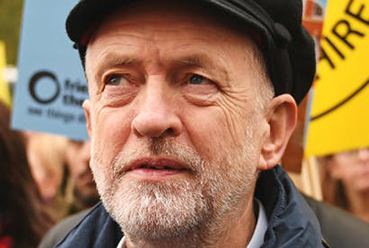 There was some praise for Jeremy Corbyn (pictured right), who might well have been the best candidate for the leadership following the resignation of Ed Milliband, offering “a sense of integrity, a sense of believing in something and a sense of moral authority”. But Mr Cruddas also criticised the leader as “too much of a Left cosmopolitan” who had “vacated nation and community”.
There was some praise for Jeremy Corbyn (pictured right), who might well have been the best candidate for the leadership following the resignation of Ed Milliband, offering “a sense of integrity, a sense of believing in something and a sense of moral authority”. But Mr Cruddas also criticised the leader as “too much of a Left cosmopolitan” who had “vacated nation and community”.
The lecture included an analysis of the “historic rhythm” of Labour’s electoral performance, with occasional victories being followed by a generation out of power, until this trend was bucked by Tony Blair. The former Prime Minister’s intellect was more formidable than often realised, according to Mr Cruddas, and Mr Blair’s grip on the electorate was based on a “patriotic sense of national renewal based on ethical propositions around what a country could be”.
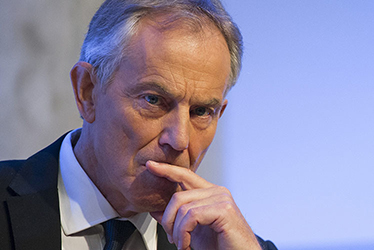 Now, however, Tony Blair (pictured left) is almost universally regarded as “the outsider, the blow-in, the villain”.
Now, however, Tony Blair (pictured left) is almost universally regarded as “the outsider, the blow-in, the villain”.
“As we approach the 20th anniversary of his 1997 landslide victory everything’s bad with Blair,” said Mr Cruddas. “But until you can own your own recent history you aren’t going anywhere. If you can’t own your victories and you start shouting down the leader who delivered all that, you will never reinvent yourself.”
In a lecture that also included a dismissive analysis of certain current trends of left-wing thought – leading to a “disinvention of work and the working classes” – Mr Cruddas called for “a modern patriotism that could animate the left and overcome despair”.
The centre left was being destroyed among western market economies, leading to the need for a new public policy “grounded in the reanimation of a notion of the common good”, he said.
Mr Cruddas added that “Labour only wins when it has a nation-building project around hope and optimism”.
During his latest visit to the University of Huddersfield, the MP also spoke to groups of students and at the public lecture he was introduced by Professor John Shepherd, a historian of Labour who is currently writing a biography of Jon Cruddas.







